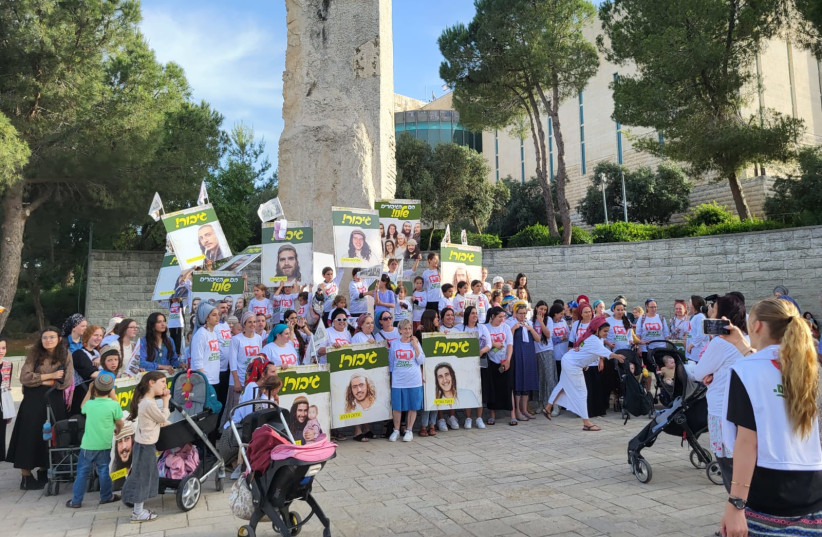Hundreds of women and children marched from the Supreme Court to the Knesset in Jerusalem on Wednesday in support of nine Jews in administrative detention, according to Ayelet Hashachar, the mother of an 18-year-old who is in custody.
The march was also in support of 22 Jews who are under the constraints of some administrative conditions, she said.
It was “a statement of mothers that they are proud of their children,” she added.
When asked why the detainees, and specifically her son, were being held, Hashachar said she had no idea and wished she knew.
"We will keep fighting"
Otzma Yehudit MK Limor Son Har-Melech told the protesters: “We will keep fighting for them, no matter how much they try to demonize and delegitimize them... because I know who these people are, and I know that they are arrested under draconian conditions with no proof and no court.”
Shai, the father of one of the detainees, said they were in administrative detention due to political persecution.
“We are proud of our children, and we will not stop protesting until everyone is free, and we won’t stop there,” he said. “We will insist that the State of Israel apologizes to these heroes.”
Administrative detainees are in detention without trial for the security of the state or the public. The vast majority of administrative detainees are Palestinian, and they can be held without trial and for flexible amounts of time, which the state can extend.

Over the years, the US and Europe have criticized Israel for using administrative detention. Human-rights activists are critical of this type of detention because it abridges standard criminal proceedings and rights.
Administrative detention involves complex problems, according to the Israel Democracy Institute. Some of these problems include the tension it causes between the principle of due process, the challenges posed by concluding what the future will be from the past, and the changing bar for what is deemed dangerous, which may lead to a slippery slope, it said.
These detentions violate basic human rights and must be categorically outlawed, according to the Israeli investigative site HaAyin HaShevi’it.
Yonah Jeremy Bob contributed to this report.
